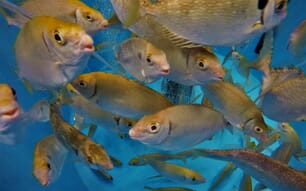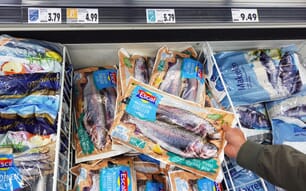When salmon encounter turbulent, fast-moving water–such as rapids or areas downstream of dams—they must move upstream using a behaviour known as “burst swimming” that is similar to sprinting for humans.
“Days after sockeye passed through extremely fast-moving water, we started to see fish dying only a short distance from their spawning grounds,” said Nicholas Burnett, a research biologist at UBC and lead author of the study, published in Physiological and Biochemical Zoology.
Previous UBC lab research found that burst swimming requires extra oxygen and energy, creates a build-up of stress metabolites like lactic acid in the blood, and may lead to cardiac collapse or heart attacks. This is the first study to show that excessive burst swimming can impair wild salmon and cause death later on in their migration. This phenomenon is known as ‘delayed mortality.’
Researchers found that fish that chose to burst swim for long periods through the high flows downstream of a dam were more likely to die en route to their spawning grounds, after they passed through the fast flows, than those that chose to swim a bit slower. Burst swimming had a greater impact on female fish, supporting this group’s research that shows female salmon are more sensitive to environmental hardships during migration.
“We now understand how this important but energetically costly swimming behaviour can impact the survival of sockeye during their upstream migration,” said Mr Burnett, who worked on this study as part of his master’s research with UBC Forestry Professor Scott Hinch and Carleton University Professor Steven Cooke.
“Our work demonstrates how important it is for salmon to have easy access around obstacles in the river.”




